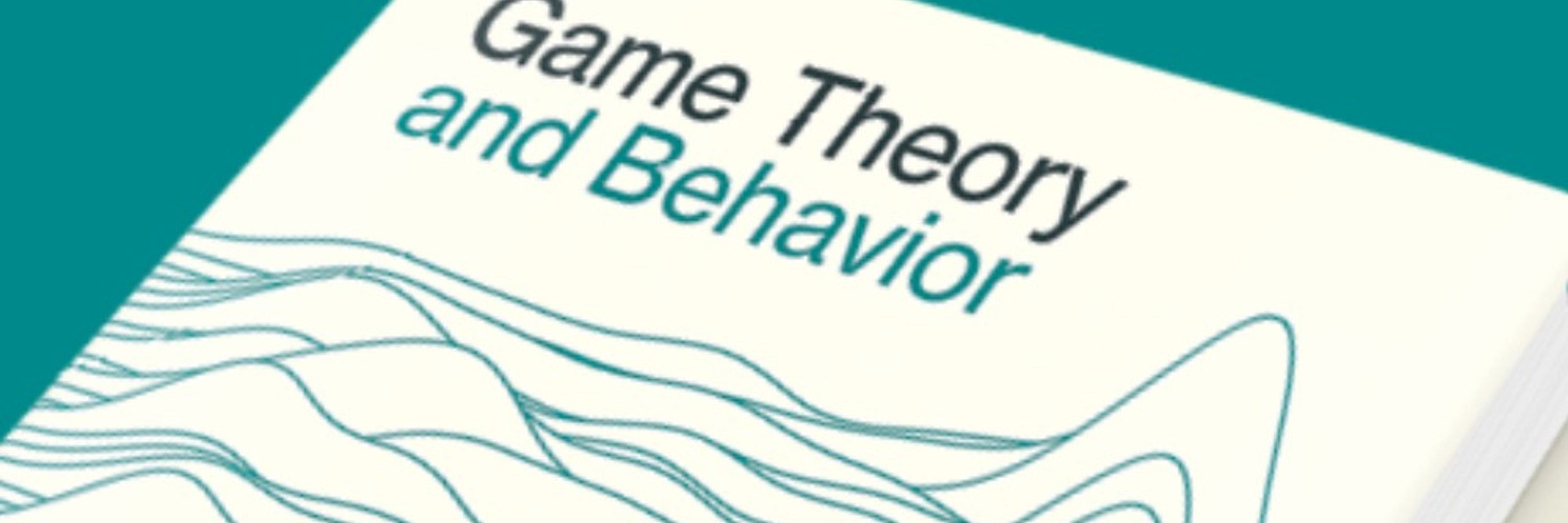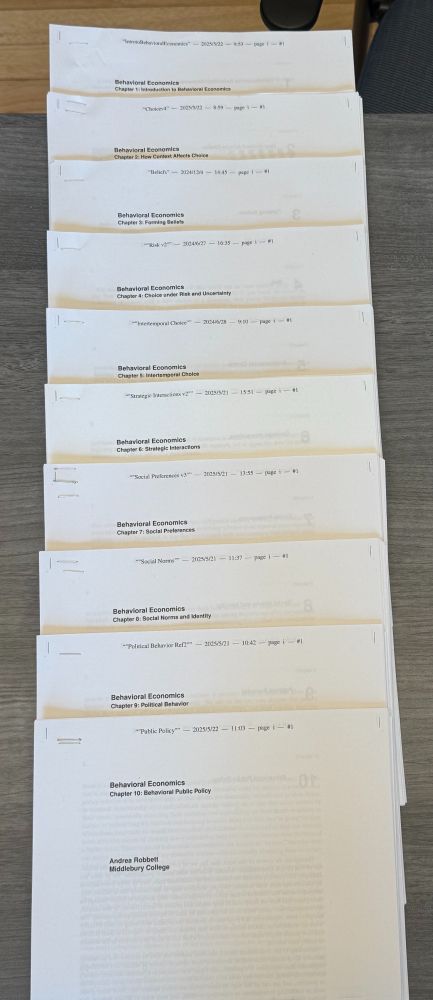Andrea Robbett
@andrearobbett.bsky.social
1.3K followers
920 following
13 posts
Experimental economist at Middlebury studying polarization, norms, social dilemmas. Co-author of Game Theory and Behavior and currently writing a behavioral economics textbook.
Posts
Media
Videos
Starter Packs
Reposted by Andrea Robbett
Reposted by Andrea Robbett
Andrea Robbett
@andrearobbett.bsky.social
· Dec 18
Andrea Robbett
@andrearobbett.bsky.social
· Dec 18
Andrea Robbett
@andrearobbett.bsky.social
· Dec 18









